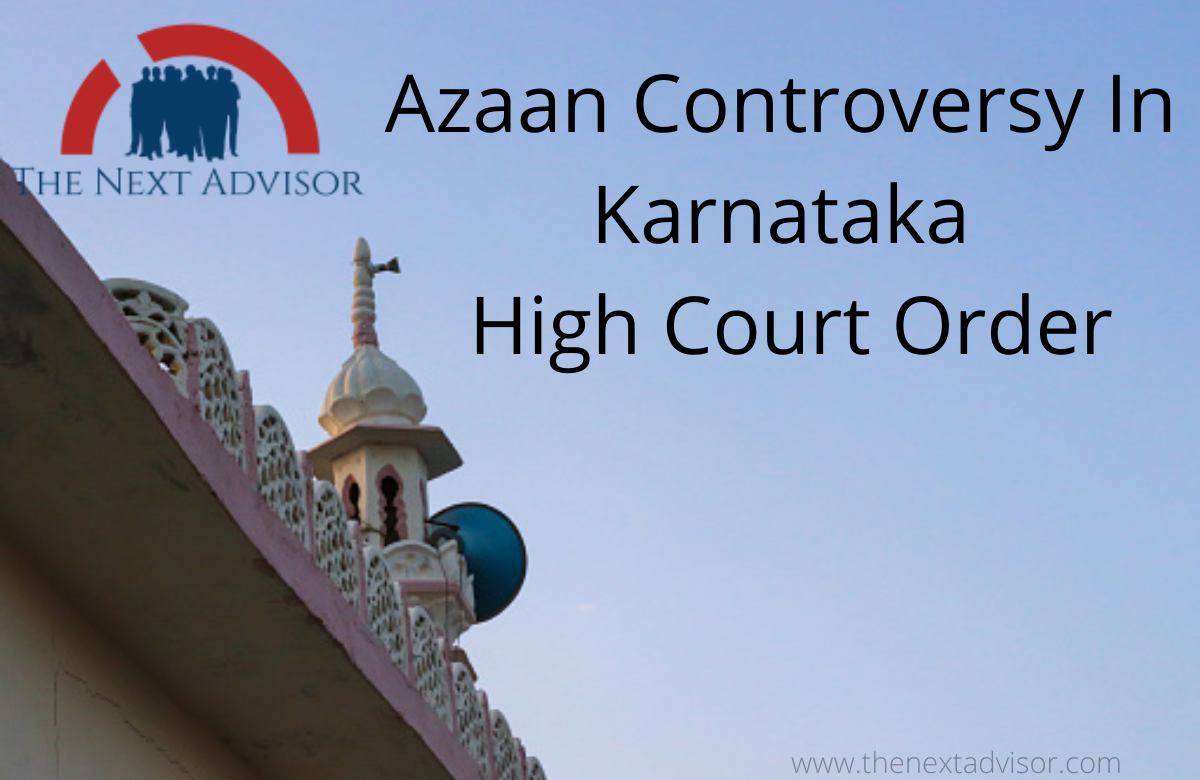Azaan Issue – Bengaluru Police begin issuing notices, security heightened in and around religious places. Let us see WHat is the Azaan Controversy In Karnataka is? And what was the order of the Karnataka High Court?
WHAT’S HAPPENING?
Amid the campaign by a few right-wing groups against the use of loudspeakers for azaan, Bengaluru city police have started seizing microphones from mosques, saying they have defied court orders on noise pollution. On April 5, city police commissioner Kamal Pant said the security forces had seized several microphones from places of worship where court orders were violated and booked cases.
The police will continue to monitor the prescribed decibel levels and a crackdown on places using loudspeakers, Pant said. Calling it an awareness drive, the commissioner said notices have been sent to 301 religious places, including temples, churches, and mosques, in Bengaluru, Asking them to follow the rules on noise as per the Karnataka State Pollution Control Board ( KSPCB ).
KARNATAKA CM View on Azaan controversy in Karnataka.
Karnataka CM Basavaraj Bommai said that the government would implement court orders on the use of loudspeakers taking everyone into confidence and not using force. ” This is a High Court order. It’s not forced. Everything has to be done by talking and explaining to people, ” Bommai said, clarifying that the move was not just for azaan, but for all loudspeakers.
The High Court had restricted the use of loudspeakers in places of worship last year. The CM said the state would implement the Supreme Court and High Court orders on regulating the use of loudspeakers in places of worship and other institutions ” in stages “.
Bommai’s statement comes a day after Karnataka minister K.S Eshwarappa said a ” solution ” was required to address the concerns over loudspeaker use in mosques in the state. There have been complaints from students and patients about the azaan disturbing them during morning and evening hours. ” This isn’t a competition between Muslims calling for prayers through loudspeakers and Hindus chanting Hanuman Chalisa, ” he said.
PROTESTS FROM RIGHT-WING GROUP
Seeking a ban on the use of loudspeakers in mosques, right-wing organizations led by Bajrang Dal and Sri Ram Sena have said, They would broadcast ‘ Om Namah Shivaya ‘, ‘ Jai Shri Ram ‘, ‘ Hanuman Chalisa, and other devotional prayers during azaan. According to Bajrang Dal member Bharath Shetty, the organization would start the campaign against loudspeakers at mosques from the Anjaneya temple in Bengaluru and conduct it across the state subsequently.
Pramod Muthalik of Sri Ram Sena alleged that despite the group submitting a request to the authorities to prevent the use of loudspeakers at 5 am in the mosque, The tehsildar in Belagavi district and the pollution control board had not taken any action against them. ” We’ll play bhajan every morning if the loudspeakers from mosques are not removed, ” The Times of India quoted Muthalik as saying.
STARTED IN MAHARASHTRA (Roots of Azaan controversy in Karnataka)
The azaan row flared in Maharashtra this weekend just before the elections to the BMC. Leaders of the MNS played the Hanuman Chalisa from loudspeakers in public places in various parts of the state after a call-to-arms by Raj Thackeray at a rally in Mumbai on Gudi Padwa.
Some BJP leaders have supported Thackeray’s call. ” Anyone who needs a loudspeaker to install it in a temple can ask us for free ! ” billionaire BJP leader Mohit Kamboj tweeted.
KARNATAKA HC ORDER? (related to Azaan controversy in Karnataka)
On January 11, 2021, the Karnataka High Court directed the state government to act against illegal loudspeakers at religious places in the state. It directed the state government to immediately issue directions to the police and the Karnataka State Pollution Control Board ( KSPCB ) to initiate action, On the use of amplifiers and loudspeakers in religious places in the state in violation of laws on noise pollution and the directions issued by the Supreme Court.
The state government must ensure the protection of the rights of the citizens under Article 21 of the Constitution, the bench observed. It took note of the fact that the court had come across several PIL petitions about the illegal use of loudspeakers in religious places, In violations of the Noise Pollution ( Regulation and Control ), Rules, 2000, issued under the Environment Protection Act, 1986.
In November 2021, the Karnataka High Court asked the state government to explain the provisions of the law under which loudspeakers and public address systems had been allowed in mosques, and what action is being taken to restrict their use. Girish Bharadwaj who filed the petition over sound pollution caused by mosques sought the court’s direction for effective implementation . of the law related to containing sound pollution.
In 2021, the Karnataka State Waqf Board issued a circular, asking mosques and dargahs in the state to refrain from using loudspeakers between 10 pm and 6 am during the azaan.
Note:- Saudi Arabia puts restrictions on the usage of loudspeakers in mosques.

























